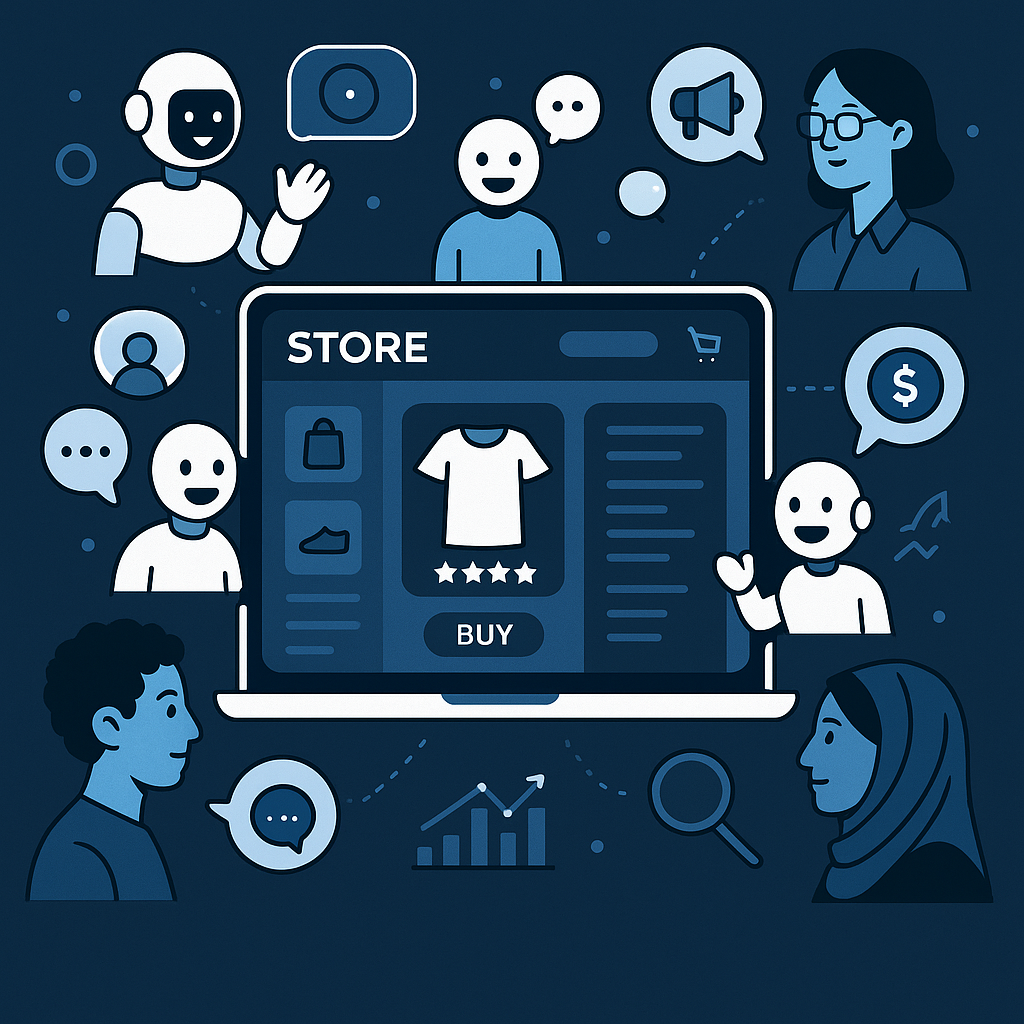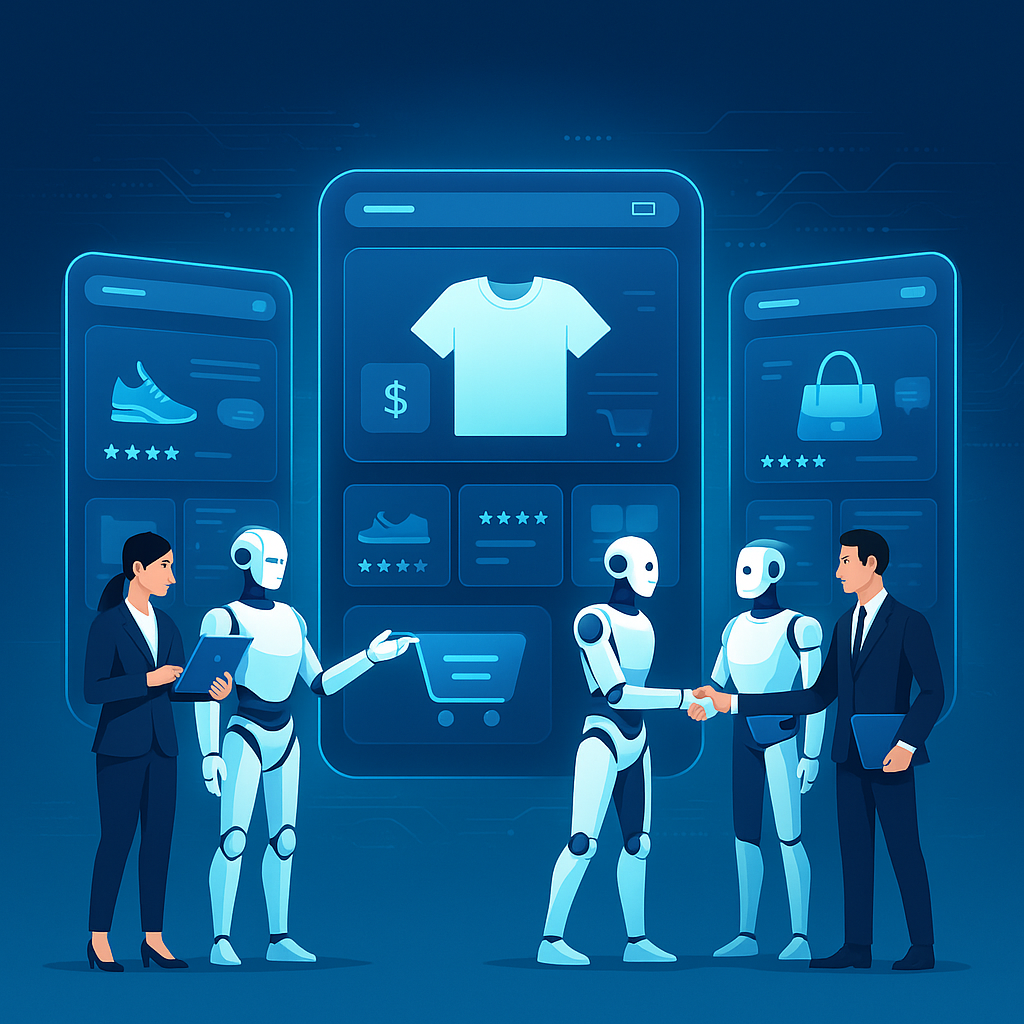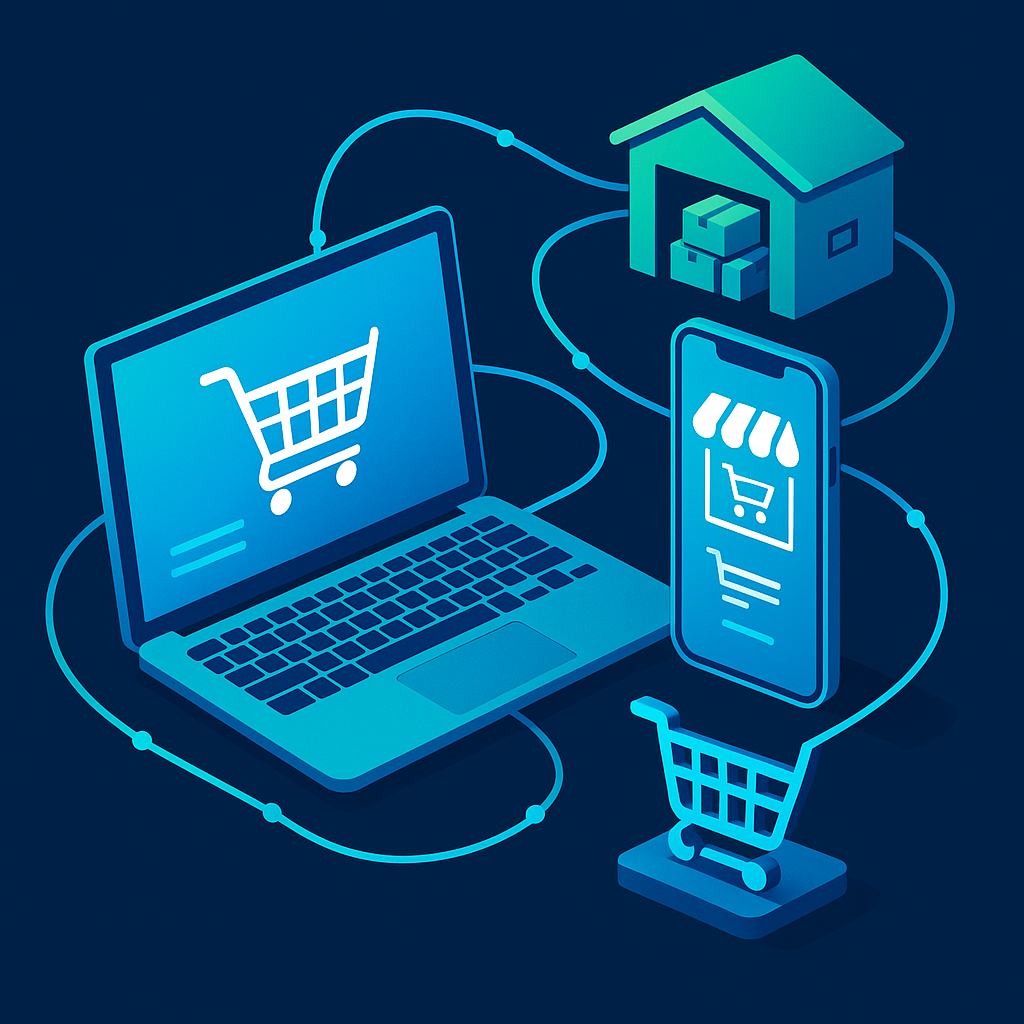
Harnessing AI Agents in Ecommerce Platforms to Revolutionize Marketing
Introduction to ai agents in eCommerce
In the dynamic landscape of ecommerce platforms today, the integration of agents in artificial intelligence has become a pivotal catalyst for revolutionizing digital marketing. These AI agents act as intelligent intermediaries, analyzing vast data streams, anticipating consumer behaviors, and autonomously crafting tailored marketing approaches. As businesses navigate increasing competition and evolving consumer expectations, intelligent automation driven by AI agents offers innovative pathways to heightened efficiency and personalized experiences.
Understanding AI Agents in Artificial Intelligence
At its core, an agent in artificial intelligence is an autonomous entity capable of perceiving its environment, making decisions, and taking actions to achieve specific goals based on complex inputs. Unlike traditional software applications, AI agents possess adaptive learning capabilities, enabling them to respond contextually and evolve their strategies over time. In ecommerce contexts, this involves receiving real-time consumer behavior data, inventory changes, and market trends to continuously refine marketing activities.
The Convergence of AI and Digital Marketing in Ecommerce Platforms
The intersection of AI and digital marketing on ecommerce platforms is defining a new era of smart marketing automation. AI agents utilize powerful machine learning algorithms and natural language processing to develop hyper-personalized campaigns, dynamic pricing models, and predictive product recommendations.
Personalized Customer Engagement at Scale
AI agents analyze customer browsing patterns, purchase history, and social sentiment to segment audiences with unprecedented granularity. This segmentation enables the delivery of individualized content, promotions, and product offerings that resonate with unique preferences. For example, a fashion ecommerce platform may deploy AI agents that automatically generate personalized lookbooks or style suggestions for each user, enhancing engagement and conversion rates.
Automated Campaign Management
Managing multiple campaigns across different channels can overwhelm marketing teams. AI agents streamline this process by independently adjusting budgets, optimizing ad placements, and fine-tuning messaging based on performance metrics. This autonomous management reduces human error and allows marketers to focus on strategic innovation.
Real-Time Data Analysis and Reactive Strategies
AI agents excel at processing live data feeds—such as website traffic, competitor prices, and social media trends—to swiftly adapt marketing tactics. During promotional events like flash sales, these agents can dynamically modify offers and timing to maximize impact, responding to consumer actions faster than traditional systems.
Practical Applications and Innovative Examples
Intelligent Chatbots as AI Agents
Beyond managing campaigns, AI-powered chatbots serve as interactive agents engaging customers directly. These chatbots can understand natural language queries, provide personalized product information, and seamlessly facilitate transactions while collecting valuable insights that further inform marketing strategies.
AI-Driven Content Generation
In 2025, ecommerce platforms employ AI agents capable of generating tailored marketing content such as email newsletters, social media posts, and product descriptions. By leveraging contextual analysis and customer data, these agents craft compelling communications that align closely with target audiences’ interests without extensive manual effort.
Predictive Analytics for Inventory and Marketing Coordination
AI agents integrate predictive analytics to synchronize marketing strategies with inventory management. Anticipating product demand enables agents to prioritize advertising on high-margin or overstocked products, thereby enhancing profitability while maintaining customer satisfaction.
Challenges and Considerations
While AI agents unlock transformative benefits, ecommerce businesses must navigate several challenges:
- Data Privacy and Ethics: Balancing personalization with customer privacy requires transparent data practices and compliance with evolving regulations.
- Dependency and Oversight: Maintaining human oversight is crucial to avoid overreliance on AI agents that might misinterpret data or perpetuate biases.
- Integration Complexity: Seamlessly integrating AI agents into heterogeneous ecommerce platforms necessitates robust technical frameworks and continuous tuning.
Conclusion: The Future of Intelligent Automation in Ecommerce Marketing
As of 2025, AI agents are no longer futuristic concepts but operational cornerstones powering ecommerce platform marketing innovation. Intelligent automation not only streamlines workflows but also elevates customer experiences through deep personalization and agility. Forward-thinking businesses embracing these AI innovations unlock competitive advantages, adapt swiftly to market fluctuations, and forge stronger consumer connections. The evolution of AI agents promises continuing breakthroughs that will perpetually redefine digital marketing paradigms, offering dynamic, effective tools to navigate the ever-changing ecommerce landscape.






